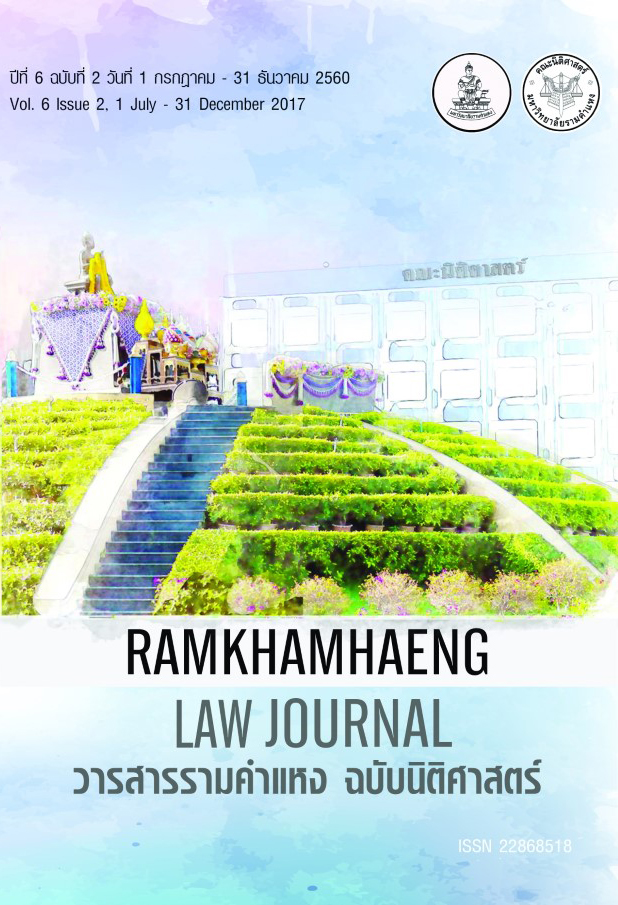ความตกลงปารีส: โครงสร้างใหม่ทางกฎหมายในการจัดการกับ ปัญหาการเปลี่ยนแปลงของสภาพภูมิอากาศ
Main Article Content
Abstract
ความตกลงปารีสเป็นส่วนขยายและเพิ่มเติมของอนุสัญญาว่าด้วยการเปลี่ยนแปลงของสภาพ ภูมิอากาศอันเกิดขึ้นจากมติที่ประชุมรัฐภาคีแห่งอนุสัญญาว่าด้วยการเปลี่ยนแปลงของสภาพ ภูมิอากาศ ครั้งที่ 21 ซึ่งจะมีผลบังคับใช้หลังจากการสิ้นสุดลงของพิธีสารเกียวโตในปี ค.ศ. 2020 บทความนี้จะได้วิเคราะห์ให้เห็นถึงกลไกในการแก้ไขปัญหาการเปลี่ยนแปลงของสภาพภูมิอากาศที่ ถูกวางไว้ภายใต้ความตกลงดังกล่าว บทความนี้มีข้อสรุปว่ากลไกภายใต้ความตกลงปารีสถือว่าเป็น การพลิกโฉมของเทคนิคที่ใช้ในการแก้ไขปัญหาการเปลี่ยนแปลงของสภาพภูมิอากาศ เทคนิคดังกล่าว สะท้อนให้เห็นปรัชญาสมัยใหม่ของกฎหมายสิ่งแวดล้อมระหว่างประเทศซึ่งก็คือการดึงให้รัฐทุกรัฐเข้า มามีส่วนร่วมในการช่วยกันแก้ไขปัญหาขณะที่ต้องตระหนักว่ารัฐแต่ละรัฐมีพื้นฐานที่ไม่เหมือนกัน
The Paris Agreement is a supplementary agreement to the United Nations Framework Convention on Climate Change (1992), which was adopted by the 21st Conference of Parties. The agreement will enter into force after the end of the Kyoto Protocol in 2020. This paper will critically analyze mechanisms that have been firmly put in place under the Paris Agreement. The paper concludes that the Paris Agreement demonstrates a new paradigm for climate change law and reflects the modern philosophical foundation of international environmental law, which is to bring every state on board while acknowledging the different national circumstances of each.
